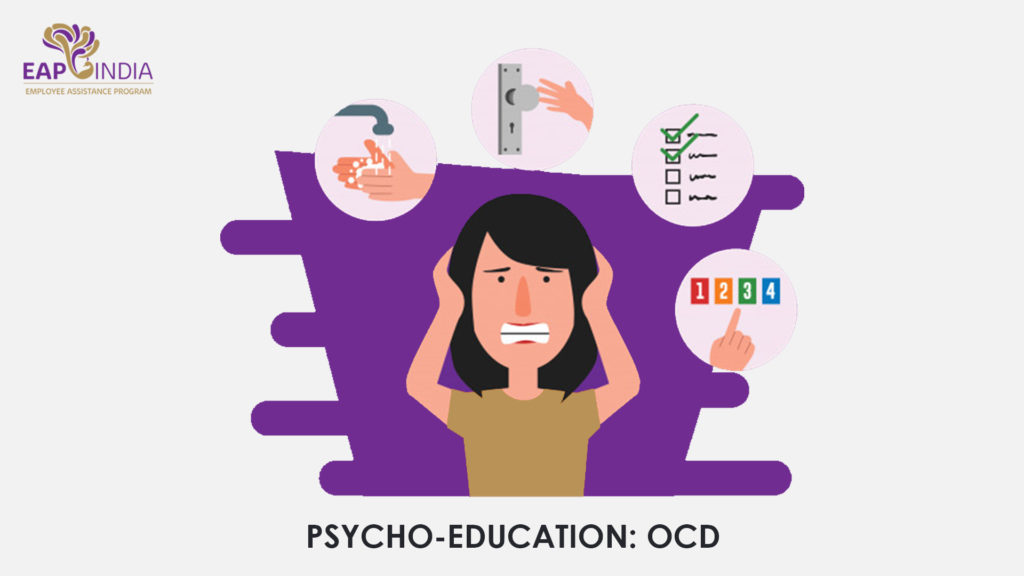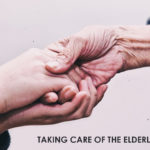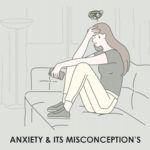Psycho-Education is the process of providing education & information to those seeking or receiving mental health services, such as people diagnosed with mental health conditions (or life-threatening/terminal illness) & their family members.
Purpose Of Psycho-Education
Many individuals with mental health conditions know very little or nothing about the condition they have been diagnosed with, the positive & negative effects of any medications they may have been prescribed.
It can benefit the individual diagnosed, parents and other family members, caregivers and friends.
It is also important to be aware of the mental health condition so that people don’t randomly use the name of the disorder and label people as that disorder. E.g. when a person has too many mood swings, someone might come across the individual and end up labelling them as bipolar; or when a person like organizing things, they might get called as having OCD.
What Is OCD?
Obsessive Compulsive Disorder (OCD) is an anxiety disorder wherein people have recurring unwanted thoughts, ideas or sensations that make them feel driven to do something repetitively.
Obsessions: unwanted, intrusive thoughts, images, or urges that trigger intensely distressing feelings.
Compulsions: behaviours an individual engages in to attempt to get rid of the obsessions and to decrease his/her distress.
These repetitive behaviours such as hand washing, checking on things or cleaning, etc can significantly interfere with a person’s daily life activities and social interactions.
Common Assumptions, Myth Busters And Additional Facts
Common Assumptions
There are a few common assumptions that people make about obsessive compulsive disorder.
- Most people have obsessive thoughts and/or compulsive behaviour at some point in their lives, but that doesn’t mean that we all have “some OCD.”
- OCD is just about hand-washing, cleaning and being neat.
- People with OCD just have to learn to live with it.
- Obsession and Compulsions are the same thing.
- Taking a relaxing vacation eases OCD symptoms.
- People with OCD are Type-A perfectionists.
Myth Busters
- People with OCD can have obsessions related to a wide variety of things, including losing control, hurting others, unwanted sexual thoughts, and many more.
- Triggers related to cleanliness and symptoms related to washing make up only a small part of the range of OCD triggers & symptoms.
- There is no reason for anyone to put up with OCD if it is having a detriment on their daily life.
- Obsessions and compulsions are different. Obsessions as we learned, are recurring disturbing thoughts, commonly around contamination, sex, religion, or harm to one or others. Compulsions are repetitive behaviours done in reaction to obsessions in an attempt to mitigate the distress they cause.
- Spending some time by the pool all day may seem calming, but a brain in the grips of OCD is apt to churn out more obsessions without work-chore-errand distractions.
Additional Facts on OCD
Here are some important facts about Obsessive-Compulsive Disorder that will help bursting myths and gaining effective knowledge in knowing OCD.
- 1 in 100 adults are estimated to have OCD
- OCD can emerge at anytime from pre-school to adulthood, but most commonly appears between ages 10-12 or in late teens/early adulthood.
- OCD-related conditions include hoarding disorder (HD) and body dysmorphic disorder (BDD) as well as hair-pulling disorder and skin-picking disorder.
- Obstacles to getting effective treatment for OCD include:
- Hiding symptoms due to embarrassment and stigma
- Lack of proper training in health professionals
- Difficulty in finding local therapists who are well-versed with treating OCD
Conclusion
Stigma is one of the biggest problems faced by people with OCD, but sometimes behaviour of other people is also unintentional. Knowing all the facts, assumptions and myth busters of OCD can help raise awareness about obsession-compulsive disorder and reduce the stigma against the disorder.
Educate yourself on knowing more about OCD and help individuals with OCD receive proper treatment.




